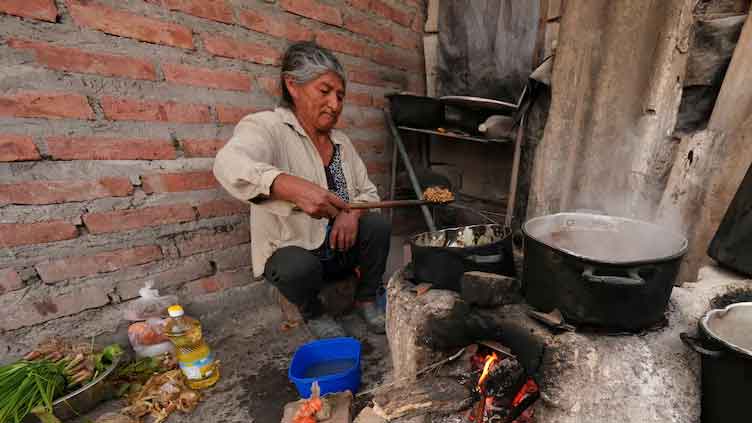In Argentina's poverty-hit barrios a food emergency takes hold

World
In Argentina's poverty-hit barrios a food emergency takes hold
BUENOS AIRES/SALTA, Argentina (Reuters) - In Argentina's poor barrios a food emergency is taking hold as poverty rises, with malnutrition on the increase and medics treating children for eye diseases and even scurvy linked to a vitamin-deficient diet.
Years of recessions and high inflation in the resource-rich South American nation have left over half the population in poverty, including around seven in 10 children.
Food insecurity has risen sharply in recent years, and is now being aggravated by a tough austerity campaign under libertarian President Javier Milei, whose new government has slashed billions of dollars of spending as part of a "zero deficit" plan to right the embattled economy.
Official data last week showed that poverty hit 53% in the first half of the year, up from around 42% at the end of last year. Some 18% of people are in extreme poverty, meaning their household incomes don't cover the cost of the basic food basket.
"There are times when I don't have enough food to feed (my children)," said Silvina Rizo, a mother of three in a shantytown on the outskirts of Salta in Argentina's mountainous north.
Rizo said she now cooks with wood because she cannot afford gas for the stove. Her youngest daughter is terrified of the wind and rain that rattle the tin roof and walls made of plastic bags.
"When it rains, the neighborhood floods. But where am I going to go?" said Rizo. "I don't have anywhere to go with my children. Rent is so expensive."
The number of Argentines facing moderate-to-severe food insecurity has almost doubled to 36% over the last seven years, a United Nations report said this year. A million and a half kids miss a meal each day and are eating fewer nutritious foods like meats and vegetables that have become more costly.


